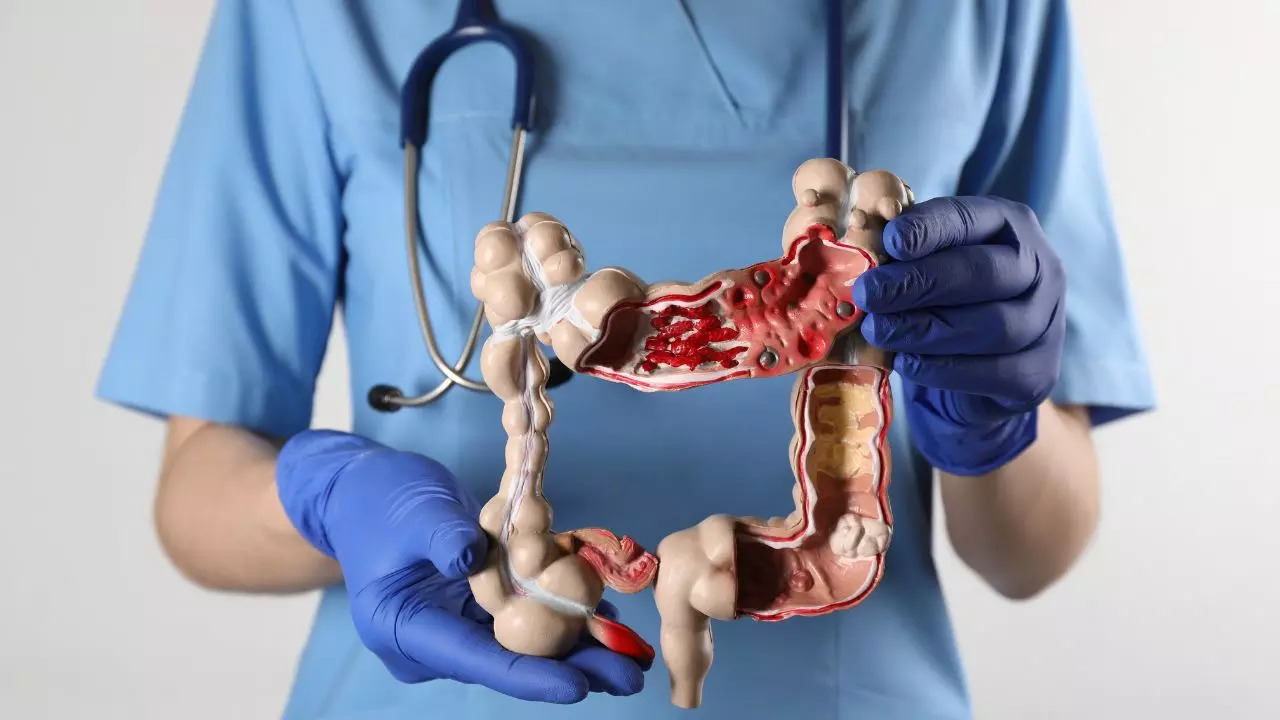Diet may be a risk factor for colon cancer in young adults, study says
The study, conducted by the Cleveland Clinic, found that dietary chemicals called metabolites are the primary risk factors for colorectal cancer in young people. Read on to learn more about the study.

Diet may be a risk factor for colon cancer in young adults
A new study has found that dietary chemicals called metabolites are the main drivers of colorectal cancer risk in young people, particularly those associated with red and processed meat. The study was conducted by the Cleveland Clinic. The npj Precision Oncology paper studied metabolite and microbiome datasets and found that discussing food with a doctor is an effective way for young adults (<60 years) to prevent colorectal cancer.
Senior author and gastrointestinal oncologist Dr. Sunil Kamath suggests that despite the efficacy of these approaches, physicians should adopt a different approach towards younger patients.
“Ultimately, it is impractical to apply our care model for people over 60 to younger adults because we cannot provide annual colonoscopies to everyone in the system,” he explains.
“It would be far more feasible to give everyone in the system a simple test to measure a biomarker that determines their risk of colorectal cancer. We could then offer appropriate screening to those at highest risk.”
Former clinical fellow Thejus Jayakrishnan, M.D., and Naseer Sangwan, Ph.D., director of the Microbial Sequencing and Analytics Resource Core, co-led the work. Researchers at Cleveland Clinic’s Center for Young-Onset Colorectal Cancer provided a large-scale analysis of patient data from individuals receiving care for young- or average-onset colorectal cancer at Cleveland Clinic.
Dr. Sangwan and his team developed an artificial intelligence (AI) algorithm to combine and analyze datasets from existing studies and to elucidate which factors are most relevant for future studies. Surprisingly, Dr. Sangwan’s analysis showed that differences in diet (identified through analysis of metabolites) accounted for a significant proportion of the differences seen between younger-onset and older-onset patients.
Dr. Sangwan says, “Researchers – including us – have begun to focus on the gut microbiome as a primary contributor to Colon cancer riskBut our data clearly shows that the main cause is diet.
“We already know the key metabolites associated with risk at puberty, so we can now steer our research in the right direction.”
The team was excited to find that diet plays such a big role in cancer risk, because it is easier to identify at-risk patients by counting metabolites in their blood than by sequencing the bacterial DNA in their stool for different microbes.
“Actually changing your microbiome can be very complex and difficult. While it’s not always easy, it’s very simple to change your diet to prevent colon cancer,” explains Dr. Kamath.
The team is now analyzing national datasets to validate the Cleveland Clinic-specific findings on patients across the country.
Younger colon cancer patients had higher levels of metabolites involved in the production and metabolism of an amino acid called arginine and the urea cycle than their older peers. These differences may be linked to long-term consumption of red meat and processed meat.
After they showed that arginine and urea cycle metabolites (and, indirectly, higher intakes of red and processed meat) are elevated in young adults with colon cancer across the country, they plan to test whether certain dietary or commercially available drugs that regulate arginine production and the urea cycle might help prevent or treat colorectal cancer that begins in youth.
Dr. Kamath says that although more research is needed to understand how dietary factors cause colon cancer, their current findings have already changed the way they approach patient care.
Dr. Kamath said, “Although I already knew before this study that diet is an important factor in colon cancer risk, I didn’t always discuss it with my patients during their first visit. With so much going on, it can already be overwhelming.
“Now, I always talk to my patients, and any healthy friends or family members who accompany them, to give them the tools they need to make informed decisions about their lifestyle.”
(With inputs from ANI)
Get the latest news on Times Now as well as breaking news and top headlines from across health and the world.


